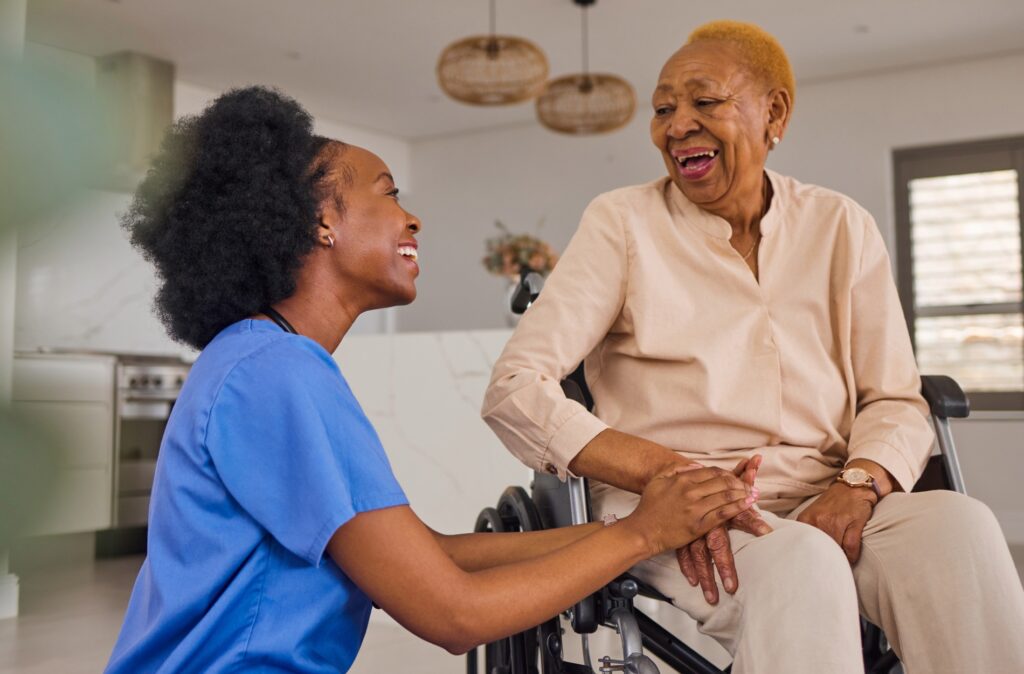Hospice care plays a precious role in the lives of those nearing the end of their journey, offering comfort and support not only to patients but to their families as well. This type of care focuses on improving the quality of life for individuals facing life-limiting illnesses by addressing their physical symptoms and providing holistic support. For many families, hospice care supports them through the emotional, spiritual, and practical aspects of this journey, making it a meaningful resource during challenging times.
One of the most significant aspects of hospice care is the support it offers to families. When a loved one is receiving hospice care, families often experience a mix of emotions, including sadness, anxiety, and even relief that their loved one is being cared for. Hospice support for families helps ease these emotions by offering compassionate guidance, emotional support, and a steady, thoughtful approach to managing this difficult period. With the right level of care, the end-of-life journey can also become a time of reflection, stronger connections, and shared peace.
Understanding Emotional Hospice Care
Emotional hospice care is an important part of the support services patients and their loved ones receive. This kind of care is centered around helping people manage feelings like fear, anger, worry, and sadness. Facing the end of life brings heavy emotions, and hospice teams understand how important it is to create space for families to talk through those feelings in a safe and open way.
Emotional support can play a big role in reducing stress and helping families feel more confident as they walk through each day. Whether it’s through one-on-one counseling, group sessions, or just having someone to talk to, these services allow people to express their thoughts without pressure or judgment.
For example, families may work with a counselor who can guide them through what to expect in the coming days and help them make sense of their emotions. Support groups are another helpful option, offering families the chance to talk with others in similar situations. These connections often remind families that they’re not facing this experience by themselves.
Hospice team members are trained in how to support both adults and children in moments of stress, grief, or uncertainty. They help bond families together, ease their fears, and remind them that every moment still matters as they spend time with their loved one. Through emotional hospice care, families can find strength within themselves and each other.
The Role Of Spiritual Care In Hospice
Spiritual care in hospice often brings comfort that goes beyond medications and treatments. It’s about helping patients and families explore questions about meaning, beliefs, and values during one of the most personal times of life. This type of care doesn’t require any specific faith. Instead, it meets people wherever they are, respecting their needs and offering peace in a way that feels right for them.
Spiritual counselors and chaplains are available to talk, pray, read, or simply sit quietly with patients and family members. Their goal is to provide encouragement and help guide conversations about legacy, purpose, or even fears about death. For those who find comfort in rituals, the hospice team may arrange them in ways that are meaningful and gentle.
Even without religion, spiritual care can still help people feel heard and supported. It may involve calming practices like music, storytelling, or holding space for personal reflection. These moments help bring relief and beauty into a time that often holds a lot of uncertainty.
The peace that comes from spiritual care can ease fears and help people feel whole. For families, it can offer meaningful memories, connection, and the chance to say meaningful goodbyes. Hospice support creates a setting where hope, even in small ways, can continue to shine through.
Practical Support for Caregivers
Being a caregiver to a loved one in hospice can take a toll over time. That’s why caregiver support hospice services are included to make sure those providing daily care are cared for too. These services offer practical help so that caregivers aren’t doing it all on their own.
Respite care is one of the most valuable services available. It gives family members a chance to take a break, rest, or take care of their own needs while a trained hospice professional steps in for a short time. This can be a few hours or even a few days, depending on what’s needed.
Training and education are another helpful part of caregiver support. Hospice teams often teach families how to safely assist with care tasks, provide comfort, and spot any changes in health. Knowing what to do can often reduce the stress and worry that come with caregiving.
Support groups offer caregivers a space to talk honestly about their experience, share advice, or just listen. It helps to talk with others who understand what you’re going through. These groups can remind caregivers that their work is deeply valuable and that their energy and health matter too.
Taking advantage of these services leads to better care for everyone involved. When caregivers feel supported, they can keep showing up with care and compassion, instead of feeling overwhelmed and alone.
Integrating Hospice Support for Families
Families benefit most when hospice support is thoughtfully coordinated across emotional, spiritual, and practical areas. The full experience of hospice care becomes more powerful when everyone involved is working together.
To make the most of hospice support, open communication is key. Let the hospice team know about your family’s unique needs, traditions, or concerns. Hospice providers are committed to making sure care feels personal and respectful.
Regular meetings give families a chance to stay informed, ask questions, and discuss any changes. They also provide updates on the patient’s condition and give families the space to plan next steps or make adjustments.
Joining workshops or support programs can also help bring more stability into daily life. These may focus on stress relief, reflection, or building community with others. Whether it’s a conversation with a nurse or a gathering with other families, each connection helps build strength.
The goal is ease and connection. Hospice support for families isn’t just one service — it’s a shared effort designed to help everyone feel more grounded and cared for through each step of the journey.
Making the Journey Easier Together
Going through hospice care can feel overwhelming, but the right support makes a real difference. Emotional hospice care helps families open up and be honest about hard feelings. Spiritual care in hospice adds peace and meaning. Caregiver support hospice services make sure no one is going through the day-to-day demands without help.
Families who tap into these supports early on often find more time to focus on what matters most. They spend less time feeling confused, worn out, or uncertain, and more time sharing stories, quiet moments, or laughter.
Partnering with a hospice team means having someone to lean on. It means knowing your loved one is cared for, while your family is supported. It’s not just about getting through this time — it’s about finding comfort in connection. That’s how the journey becomes more manageable, and how healing can begin even in the middle of loss.
Finding the right hospice support can make a meaningful difference for families going through the end-of-life journey. At VNA of Ohio, we’re committed to providing care that includes emotional hospice care, spiritual care in hospice, and practical services for caregivers. Learn how our approach to hospice support for families can bring comfort, guidance, and peace of mind when it’s needed most.







